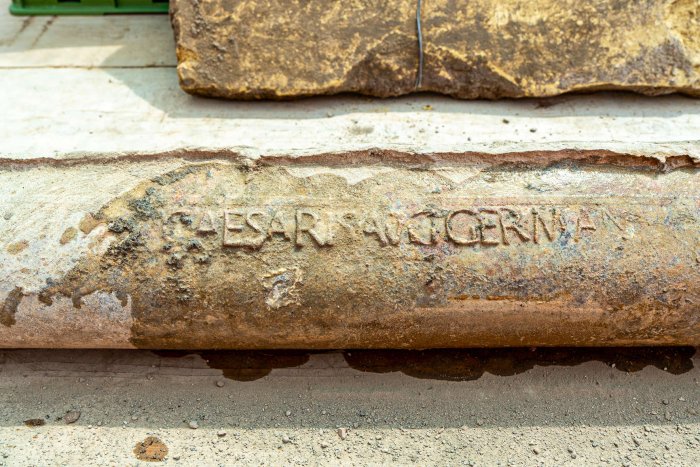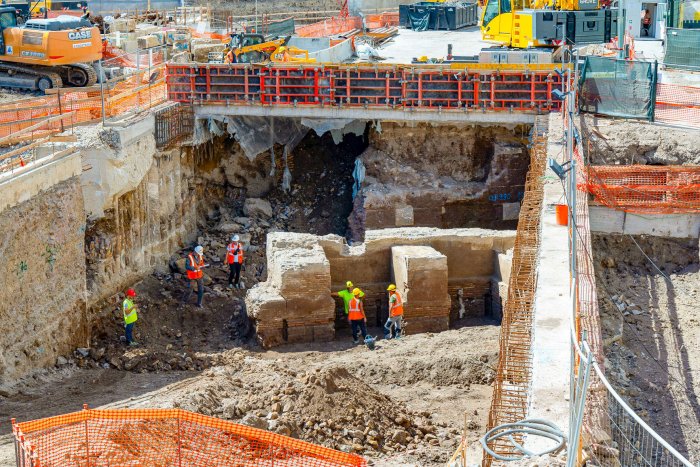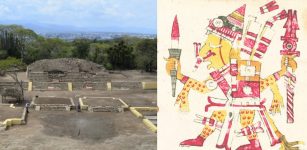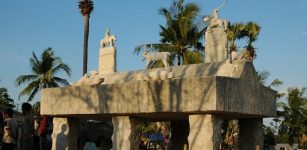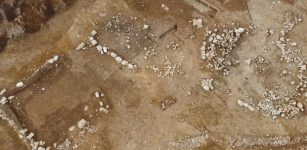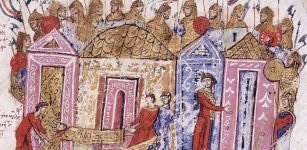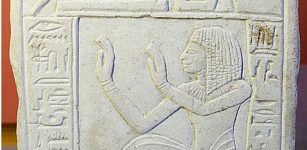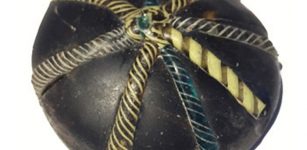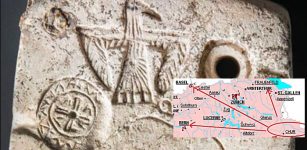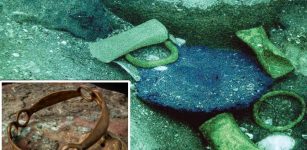Emperor Caligula’s Ancient Garden Found Under Piazza Pia In Rome, Italy
Jan Bartek - AncientPages.com - The Vatican is preparing for its upcoming Jubilee year in 2025, a significant event in the Catholic calendar. In anticipation, Rome has initiated extensive renovation projects throughout the city.
During construction work in Piazza Pia, near the Vatican, workers made an unexpected archaeological discovery. Experts uncovered the remains of an ancient garden arrangement dating back to the imperial period on the Tiber's right bank.
Credit: Ministero della Cultura
The discovery occurred while relocating a fullonica, a workshop used for processing textiles. The unearthed structure consists of a travertine wall and a colonnaded portico, though only the foundations of the latter are currently visible. These elements once bordered a large garden.
The excavation project, overseen by the Special Superintendence of Rome under Daniela Porro's leadership, with archaeologist Dora Cirone coordinating and Alessio De Cristofaro providing scientific direction, revealed three distinct building phases. These phases span the period between the reigns of Augustus and Nero, the Ministero della Cultura informed in a press release.
A particularly noteworthy find was a lead water pipe, known as a fistula plumbea. This pipe bears an inscription with the name of the water system's owner, who was likely also the garden's proprietor.
The inscription “C(ai) Cæsaris Aug(usti) Germanici” identifies the owner as Emperor Caligula, son of Germanicus and Agrippina the Elder, who reigned from 37 to 41 C.E.
Credit: Ministero della Cultura
The recent archaeological discovery has aroused significant scholarly interest, as it appears to corroborate an account in Philo of Alexandria's "Legatio ad Gaium." Philo, a Jewish historian from Alexandria, Egypt, describes a meeting between Emperor Caligula and a delegation of Alexandrian Jews in the Horti di Agrippina, an extensive garden overlooking the Tiber River, separated from the waterway by a monumental portico. Philo's description and the unearthed remains suggest that Piazza Pia may indeed be the location of this historically significant encounter.
Bust of Caligula. Credit: Sergey Sosnovskiy - CC BY-SA 2.0
The delegation sought to alert Caligula to the crisis between Alexandria's Jewish community and the city's Greek population, which had resulted in widespread violence and religious intolerance. However, Caligula, favoring the Greek faction, dismissed their appeals.
Credit: Ministero della Cultura
Archaeologist Alessio De Cristofaro emphasizes the significance of the inscription on the fistula, which confirms the location of the Horti di Agrippina maggiore near Piazza Pia. Additional inscribed lead pipes, discovered in the early twentieth century, bear the name of Iulia Augusta, presumably Livia Drusilla, Augustus' second wife and Germanicus' grandmother. These findings indicate that the luxurious residence passed from Germanicus to the elder Agrippina, and subsequently to their son, Emperor Caligula.
ee also: More Archaeology News
The excavation also yielded Campana Slabs, figured terracottas traditionally used for roof ornamentation, featuring unusual mythological scenes. These slabs, repurposed as sewer covers in the fullonica, were likely originally intended to embellish a garden structure, potentially the portico itself.
Written by Jan Bartek - AncientPages.com Staff Writer


